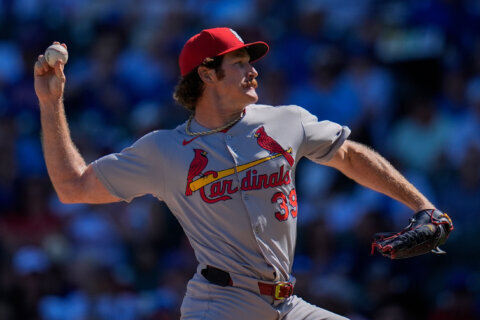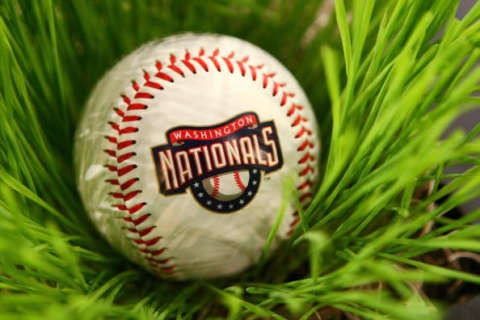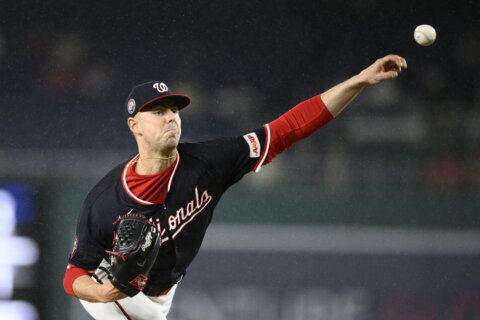WASHINGTON — So, here we are again. Baseball has advanced to its League Championship Series, and the Washington Nationals and their fans are left — once more — watching four other teams on television.
Whether or not you believe in the game’s mysticism, the club has endured a sick, twisted version of the San Francisco Giants’ luck over the past three even-numbered years — call it Even Year Tragic.
But before Game 5 — one of the craziest, most unpredictable, nerve-fraying, dramatic postseason games in recent memory — Nationals fans waiting to enter the gates were serene, even cautiously optimistic. If there was an underlying existential dread about what might transpire later, they at least weren’t interested in speaking about it on the record.
The Navy Yard neighborhood — which has sprung up in concert with the Nationals’ rise to relevance in baseball’s postseason landscape the past few years — was full, but not buzzing Thursday evening in the hours before 8:08 p.m., the first pitch of Game 5. As the sun disappeared into Virginia, several different groups of fans around the outskirts of Nats Park chatted about what they expected from the game, and what a win or loss would mean.
At The Bullpen, four men stood at the corners of a table, two in home colors, two in blue. Nationals fans Russell Crawford and Chris Mayo had just met and were chatting about the game with Mark Horner and his son Markus. The latter are both Washingtonians, but Dodgers fans. Mark grew up with the club, his weathered Kirk Gibson jersey answering any unasked questions.
“Dusty losing eight, different ballclubs, kind of makes you a little nervous,” said Crawford, immediately addressing the home manager’s postseason history in closeout games, almost as a disclaimer. “But I think we’re good. I think we’re ready.”
Mayo was more optimistic, even ready with a shot at Metro.
“We’ve got a perfect night, a ride home,” he said. “We know what we’re doing here.”
The Dodgers fans were equally optimistic, even with their own hedging.
“I think — and I’ve felt this all year — that this was their year,” said the elder Horner. “But we’re from Washington, so we’re going to be good either way. We’re not going to be sad today.”
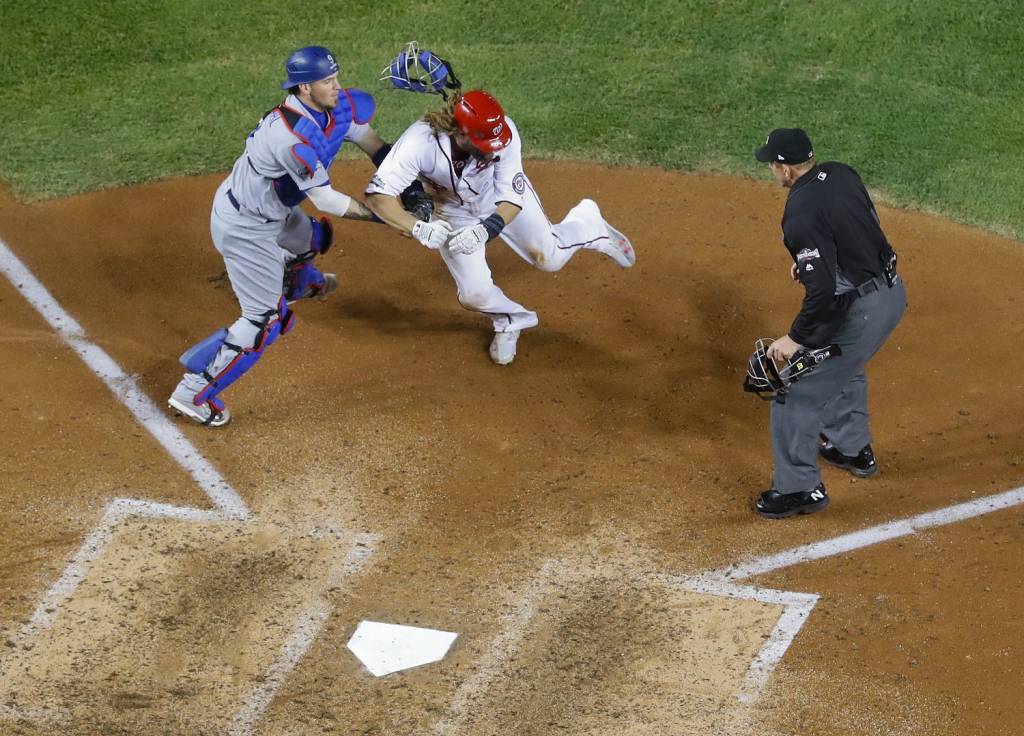
Baseball likes to talk about its war between new and old school strategies, but much like our political ideologies, we share more in common than we readily admit. Sure, some people think grit is quantifiable and still believe in bunting (seriously, don’t ever bunt; stop bunting), but everyone, no matter their orthodoxy, knew exactly where Game 5 turned.
It turned on two pitches — the final pitch of the sixth and the first one of the seventh. Whether you believe in win expectancy or gut feeling, the swing was undeniable. The Nationals’ win expectancy was at 77.8 percent after Werth’s leadoff walk, and surely would have been at close to that with runners at second and third and two outs (run expectancy for a man a first with nobody out is .859, while it is .580 with runners at second and third and two out). Instead, Werth was thrown out by 50 feet at home plate on a ludicrous send by Bob Henley, ending the rally. Once Joc Pederson had homered on Max Scherzer’s first pitch in the seventh, the win expectancy was an even 50-50. By the time Justin Turner tripled home two insurance runs to make it 4-1, it was down to 10.1 percent.
Source: FanGraphs
While both sets of fans at The Bullpen couldn’t be right about the outcome, they each seemed to have a notion of the type of game we would see Thursday night.
“I think coaching is going to play a huge, pivotal role in this game,” said Crawford, foreshadowing the managerial showdown that defined the later innings.
“At the end of the day, just like every game has been a one-run game, I think this is going to be a one-run game until the ninth,” said Markus Horner. “I think it’s going to be close.”
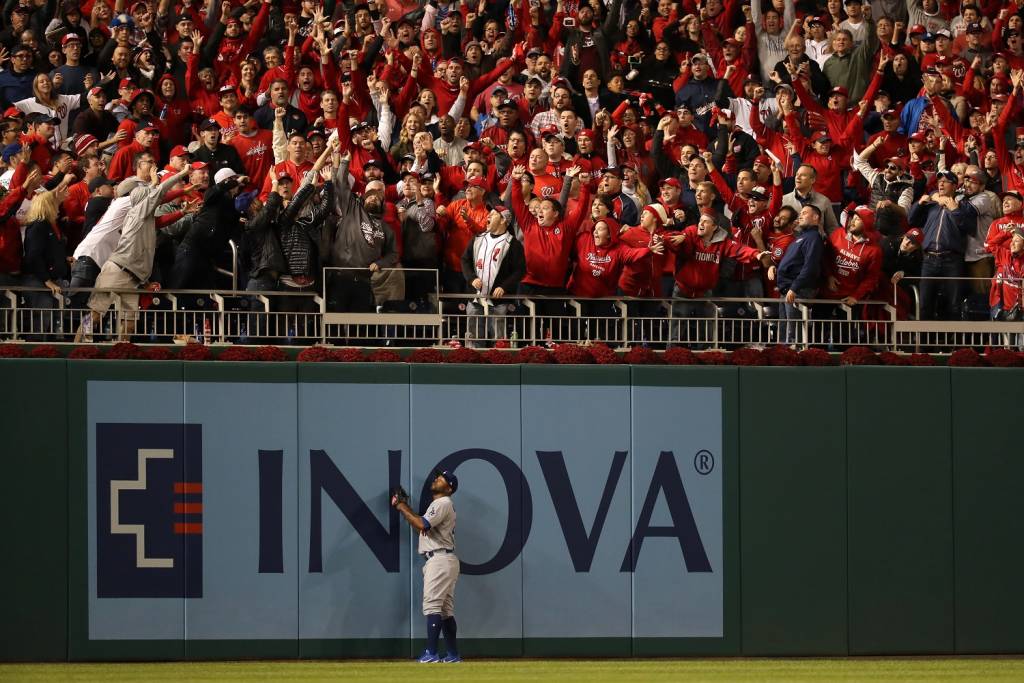
As the clock passed six, over on the patio at Blue Jacket, Sterling residents and friends Mark Harrington and Eric Holmberg sipped beer and chatted while lounging on the couches among a sea of red. They looked at the game’s larger significance in the landscape of D.C. sports.
“Washington needs this,” said Harrington. “Our sports history of the past 20 years has not been a good one.”
“The Nats don’t have enough history to have a curse yet,” added Holmberg, wearing a Jayson Werth jersey. “It’s almost like the Cubs had to go through that catharsis in order to get where they are now, and I think the Nats are going to do that tonight.”
Catherine Wilson, a D.C. area native and Alexandria resident waiting down in Yards Park as the lights took effect, adorned in an Anthony Rendon jersey shirt, had perhaps the most prescient take.
“I’m more optimistic,” she started, but hedged. “I’m optimistic and nervous. Because, gee whiz, you just never know. Baseball can be a strange and cruel game.”
She would know. While she was spared watching Game 5 in 2012 in person, she stayed for all 18 innings of the 2014 Game 2 loss, the final game at Nationals Park that season. It was very long, and very cold, and very sad, she said, laughing.
Thursday night was not nearly as long, nor as cold, nor as sad, even if the end result was the same.
It can be easy to forget, four years later, but first pitch of Game 5 in 2012 was at 8:37 p.m. Factor in a three-hour, 49-minute game, and you find the final indignities of the ninth inning not on Oct. 12 anymore, but in the wee hours of Oct. 13, after midnight. That made Thursday the fourth anniversary of the end of the worst game in franchise history, the only other winner-take-all opportunity. But where 2012 was a collapse of painstaking proportions, Thursday night was simply a display of baseball’s beauty, of the razor thin margins that separate glory from agony, success from failure, victory from defeat.
Still, as Thursday night morphed into Friday morning, just as Stephen Drew dug into the batter’s box in the bottom of the eighth, there was a new day on which to write a new history. And for a few moments, as Bryce Harper and Jayson Werth ground out walks to put runners at first and second with one out for the possible National League MVP Daniel Murphy, that new history felt tangible.
Then, Roberts turned to Clayton Kershaw, after saying he absolutely wouldn’t, the final stroke of genius in a masterpiece of managing. It’s the piece of the game that, for all the deserved praise Baker received for his handling of the clubhouse, has never been his strength. It wasn’t his fault the Nationals lost, but he was most certainly outmaneuvered Thursday night.
Baseball is a game of statistics, more so than any of our other sports. And there’s always a way to take statistical information, especially when using arbitrary end points, to support whichever side of an argument you advocate. In that vein, did the Nationals hire Dusty Baker, the man who took three other teams to the postseason, including the 2002 San Francisco Giants to the World Series? Or did they hire Dusty Baker, the manager who had lost eight consecutive games with a chance to clinch a playoff round, the longest such streak ever?
The answer, of course, is yes.
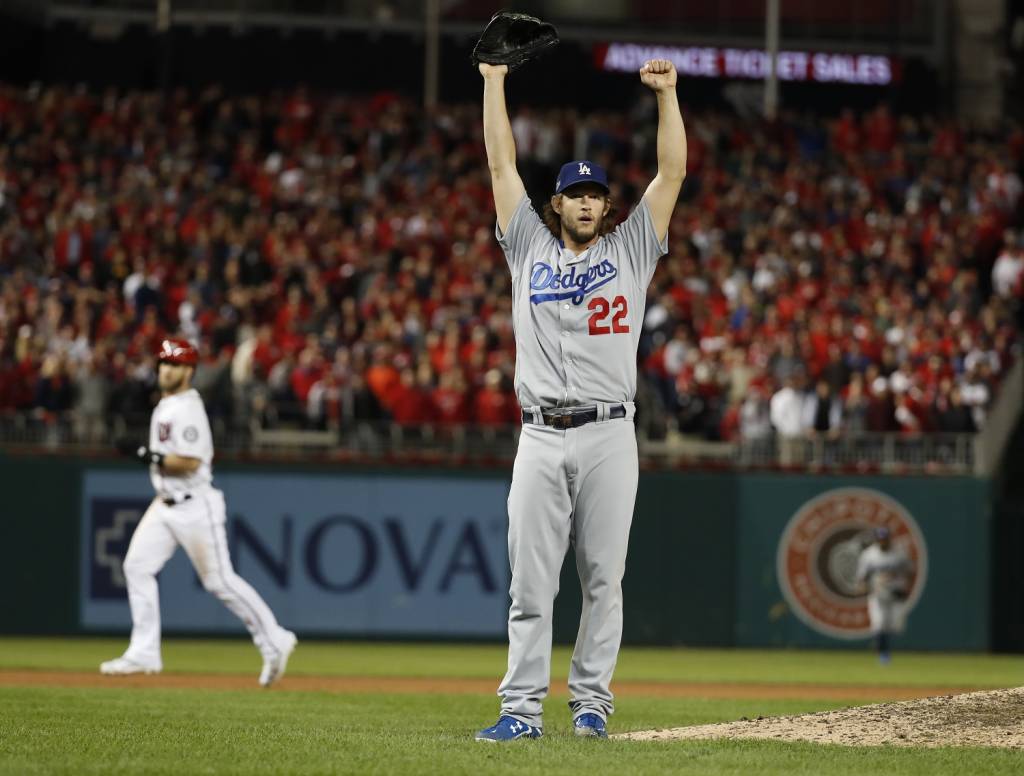
The range of possibilities still dance in daydreams, even after elimination.
That’s what’s so disconnecting about watching the postseason rounds play on without your team. Sure, maybe the players are telling the truth that they don’t look ahead, that they are singularly focused on the task at hand. But fans certainly do.
“I see it as, we get over a hump. If we win, we go into the next series hyped,” said Crawford, back at The Bullpen.
“If they could get to the championship, it would change the city’s view of the team,” said Wilson.
It’s only natural. You’ve already thought about who would start Game 1 at Wrigley, how quickly Scherzer would be available later in the series. Maybe you’ve wondered if Daniel Murphy could possibly reprise his role as one-man demolition crew for the 108 years of pent-up frenzy, if he could lend any more credence to the idea that the curse is a real, tangible thing thriving in front of our eyes all these years later.
It’s the hastily compiled, other version of the game story being hammered out in the seventh after Chris Heisey’s pinch-homer, the one being updated each pitch as the action in the ninth unfolded and the game-shifting runs advanced 90 feet at a time. It’s the double take, noticing that story is still sitting in the open files on the laptop, unfinished; glancing over it again; imagining the entirely different reality if it was the one published, instead of the one you’re disposing of, an alternate reality that exists only in our minds in moments of reflection and as the ends of sentences beginning in “What if …”

